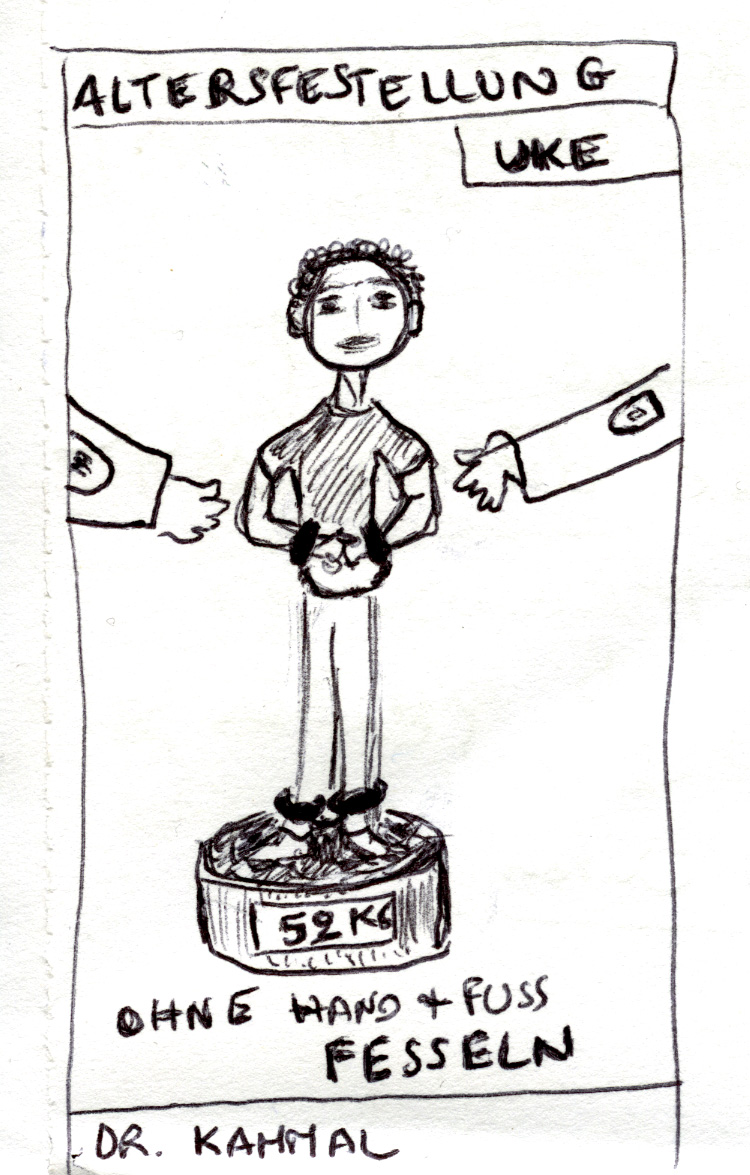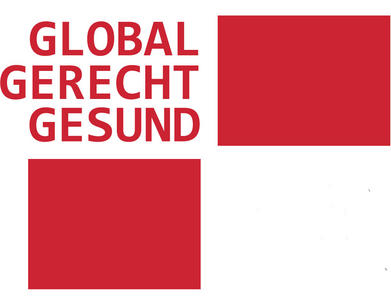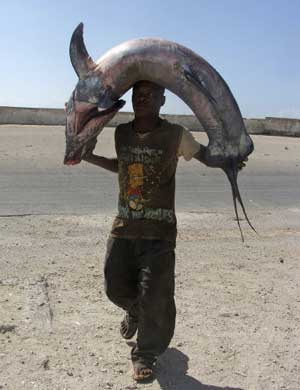Privatizing Greece
The Question: Is the sale of the Greek family silver a long-term solution? is to be answered: No!
But what else to do? The answer is found around the corner: A wage raise in Germany.
The Question: Is the sale of the Greek family silver a long-term solution? is to be answered: No!
But what else to do? The answer is found around the corner: A wage raise in Germany.
 One detail of the Dominique Strauss-Kahn case that is reported matter-of-factly actually sounded quite unusual and disturbing to me. As now commonly known, Mr. Strauss-Kahn was released from custody in the notorious Rikers Island prison in New York on bail of $ 1,000,000 (plus $ 5,000,000 in insurance guarantees) and is under house arrest in a Manhattan apartment. So far, so standard procedure. Now awaiting prosecution for attempted rape and six other counts, he may not leave New York and is being guarded 24/7 by a private security company. That’s right, a private security company. And this private security company is not being paid by the city of New York, but by Strauss-Kahn himself. Read more
One detail of the Dominique Strauss-Kahn case that is reported matter-of-factly actually sounded quite unusual and disturbing to me. As now commonly known, Mr. Strauss-Kahn was released from custody in the notorious Rikers Island prison in New York on bail of $ 1,000,000 (plus $ 5,000,000 in insurance guarantees) and is under house arrest in a Manhattan apartment. So far, so standard procedure. Now awaiting prosecution for attempted rape and six other counts, he may not leave New York and is being guarded 24/7 by a private security company. That’s right, a private security company. And this private security company is not being paid by the city of New York, but by Strauss-Kahn himself. Read more

“The fishermen, when they lose their fish, they think” – A., Somali in Germany.
Since November 2010, ten Somali citizens are on trial for Piracy in Hamburg, Germany. Reclaim the Seas ist the blog about the trial and the backgrounds on why fishermen are forced to change their profession.
A controversial new farms policy has led to a political clampdown in a remote lowland region of Ethiopia. The government of Meles Zenawi is pioneering the lease of some three million hectares of land over the next five years, an area the size of Belgium. The policy is targeting massive lowland areas mostly in the west and south-west of the country. These are regions populated by smaller minority ethnic groups. The government denies conducting any repression, and says instead that its policy is aimed at lifting local people out of poverty. Foreign investors in Gambella include Chinese, Indian and Saudi firms. The Saudis alone say they are hoping to produce as much as a million tonnes of rice per year, most of it for their own domestic market. Read more (BBC, 16.12.2001)
 A new NGO called A Human Right is campaigning “Buy this Satellite” to raise $150K in a bid to buy one of the world’s highest capacity communications satellites from its bankrupt owners in order to re-task it to supply Internet access to the world’s poorest people. They plan on building their own super-cheap satellite modems as well. Read more
A new NGO called A Human Right is campaigning “Buy this Satellite” to raise $150K in a bid to buy one of the world’s highest capacity communications satellites from its bankrupt owners in order to re-task it to supply Internet access to the world’s poorest people. They plan on building their own super-cheap satellite modems as well. Read more
 The Right to Health is easily proclaimed, signed by all valid Human Rights packages or defined as unavoidable in progressive constitutions, such as in Brazil or South Africa. But one third of the human population dies due to poverty related diseases. Human Rights are foreseeable not fulfilled under the current global economical rules. Under the umbrella of those rules an enormous shift of wealth, from the bottom to the top, took place. 1.125 Billionaires possess three times more of the world’s capital than the poorer half of the world population. Since 1988 the richest twentieth of the population gained eight percent of the world’s capital, whereas the poorest quarter lost thirty percent. Read more
The Right to Health is easily proclaimed, signed by all valid Human Rights packages or defined as unavoidable in progressive constitutions, such as in Brazil or South Africa. But one third of the human population dies due to poverty related diseases. Human Rights are foreseeable not fulfilled under the current global economical rules. Under the umbrella of those rules an enormous shift of wealth, from the bottom to the top, took place. 1.125 Billionaires possess three times more of the world’s capital than the poorer half of the world population. Since 1988 the richest twentieth of the population gained eight percent of the world’s capital, whereas the poorest quarter lost thirty percent. Read more
The RMI’s oil import map interactively shows how much oil the U.S. has imported, from where, and how much the US have spent every month since 1973. The NYT oil prices chart tells how oil consumption and prize intermingle.
Source: The Beauty of Infographics
 Power structure research is an approach to the study of power that highlights the unequal distribution of resources upon which power is based (e.g., wealth, political office, control of the mass media) and the importance of formal and informal social networks as the means by which power is concentrated and institutionalized. Read more
Power structure research is an approach to the study of power that highlights the unequal distribution of resources upon which power is based (e.g., wealth, political office, control of the mass media) and the importance of formal and informal social networks as the means by which power is concentrated and institutionalized. Read more
The Futures Group looks at possible futures in the timeline 2020-25 for opportunities and threats. It straddles both Asian and Western perspectives. In their own words:
Trends/shifts are like seeds today. Some seeds sprout to become towering trees, some seeds will grow for a short while but have no staying power and will die off. Some seeds never make it. What we try to do is make an educated guess how these seeds will contribute to the forest of tomorrow. Then we backcast and ask “How do we prepare ourselves to survive and thrive in this forest?” We’ve covered a variety of topics from Arctic Melt, Food, Global Cities to Little economy, Augmented human beings, Batteries and Electric Cars.
 In past years, illegal commercial trawlers parked off Somalia’s coast and scooped up the ocean’s contents. Now, fishermen on the northern coast of neighboring Kenya say, the trawlers are not coming because of pirates. “There is a lot of fish now, there is plenty of fish. There is more fish than people can actually use because the international fishermen have been scared away by the pirates,” said Athman Seif, the director of the Malindi Marine Association. Read more
In past years, illegal commercial trawlers parked off Somalia’s coast and scooped up the ocean’s contents. Now, fishermen on the northern coast of neighboring Kenya say, the trawlers are not coming because of pirates. “There is a lot of fish now, there is plenty of fish. There is more fish than people can actually use because the international fishermen have been scared away by the pirates,” said Athman Seif, the director of the Malindi Marine Association. Read more
 Just when colonialism was considered dead and buried, along comes neo-colonialism in its latest guise. Allied with its close relatives globalisation, free marketeering and lack of transparency, it is currently launching a new offensive on the disempowered population of this continent. Kwame Nkrumah, along with others in the post-colonial Pan Africanist movement, coined the term ‘neo-colonialism’ to describe continued access to the resources of less developed nations, by both national and private interests allied to wealthy nations. He warned against the continued impacts of colonialism if the risks inherent to neo-colonialism were neither addressed nor dealt with. Read More
Just when colonialism was considered dead and buried, along comes neo-colonialism in its latest guise. Allied with its close relatives globalisation, free marketeering and lack of transparency, it is currently launching a new offensive on the disempowered population of this continent. Kwame Nkrumah, along with others in the post-colonial Pan Africanist movement, coined the term ‘neo-colonialism’ to describe continued access to the resources of less developed nations, by both national and private interests allied to wealthy nations. He warned against the continued impacts of colonialism if the risks inherent to neo-colonialism were neither addressed nor dealt with. Read More